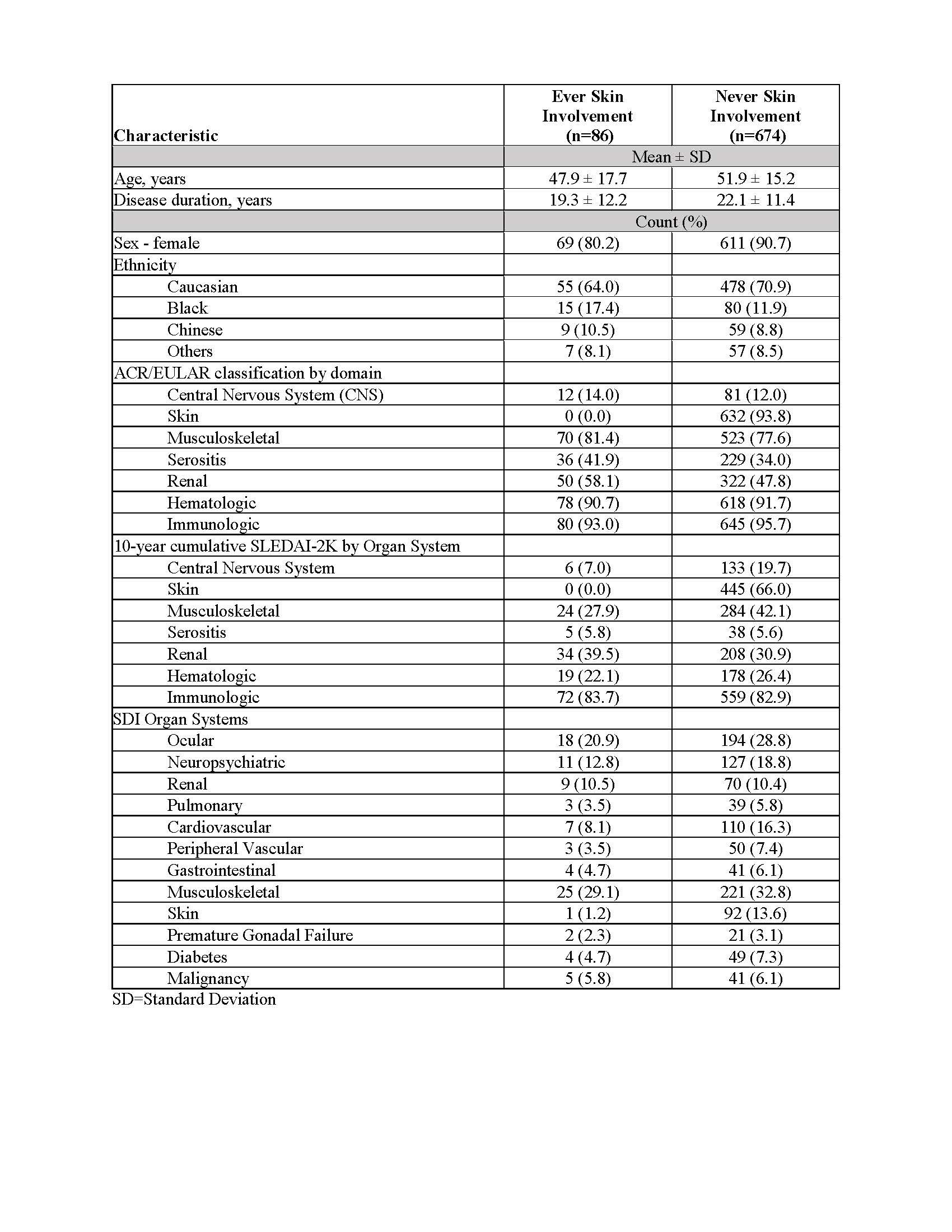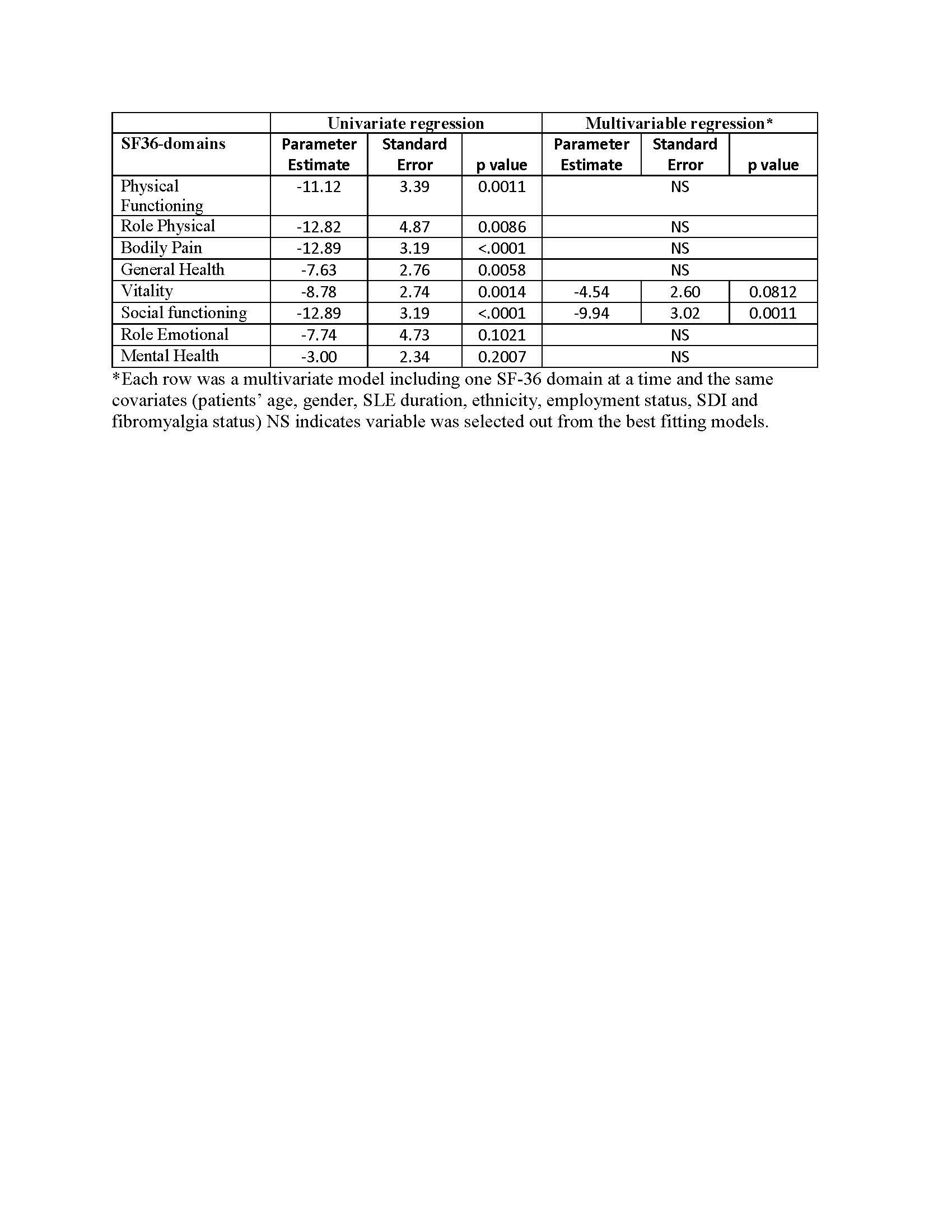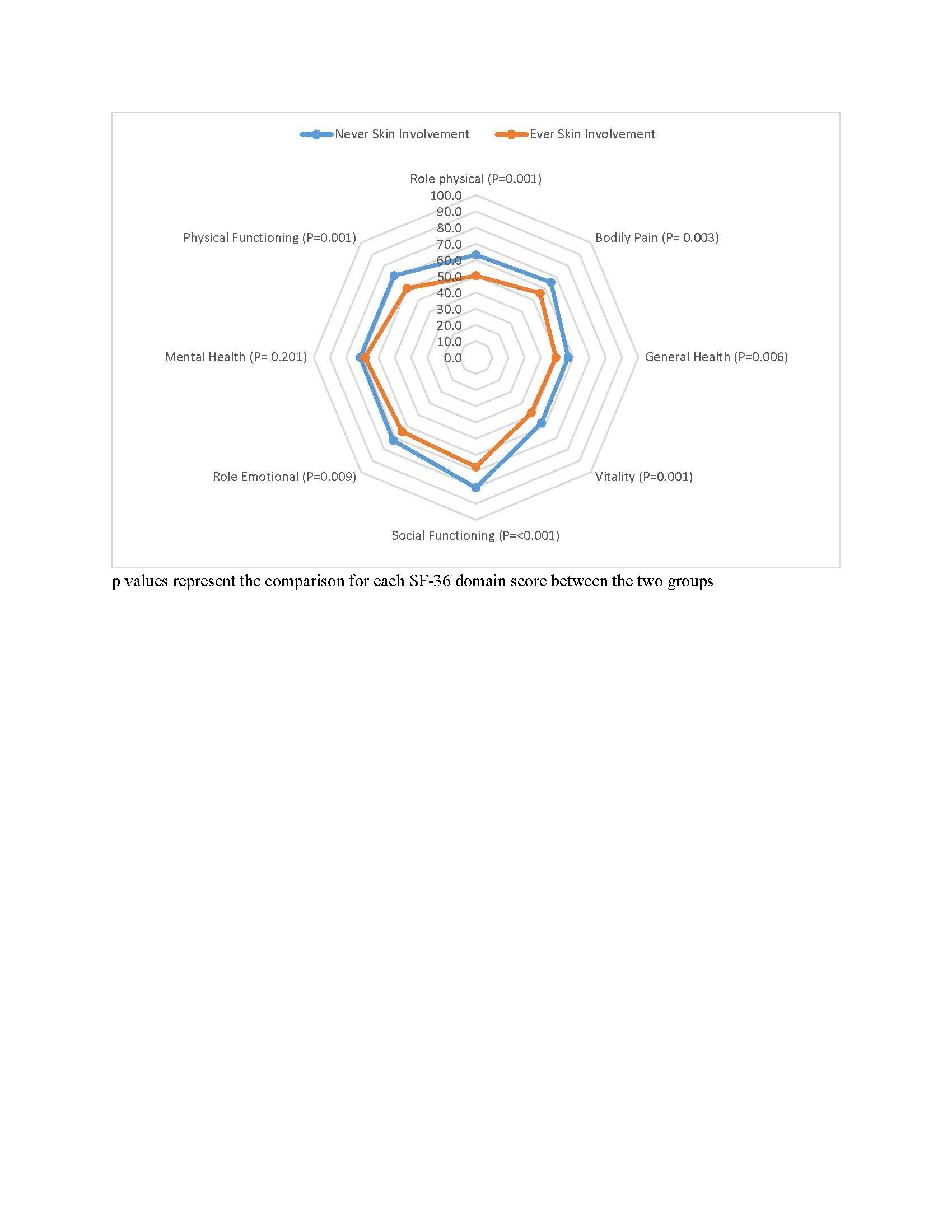Session Information
Date: Monday, November 14, 2022
Title: SLE – Diagnosis, Manifestations, and Outcomes Poster III: Outcomes
Session Type: Poster Session D
Session Time: 1:00PM-3:00PM
Background/Purpose: Skin involvement in Systemic Lupus Erythematosus (SLE) occurs in 50-85% of patients making it one of the most commonly affected organs in SLE. Previous studies have shown that SLE has a large impact on Health-Related Quality of Life (HRQoL). A more in-depth investigation of skin involvement is required, as many patients feel self-conscious about their appearance when manifestations such as alopecia, malar and discoid rashes are present. Our goal for this study was to determine the HRQoL in SLE patients with skin involvement compared with other organ system involvement
Methods: Patients attending a single centre underwent HRQoL assessment, using the 36-Item Short Form Health Survey (SF-36). Patients with > ten years of follow up were included in the study. Organ involvement was based on the 10 domains of the EULAR/ACR classification criteria and the 9 domains of cumulative 10-year SLE Disease Activity Index 2000 (SLEDAI-2K) prior to index date (latest clinic visit). Patients were stratified based on ever having skin involvement or never having skin involvement in the past ten years. Descriptive and regression analyses were performed, adjusted for sociodemographic, organ damage by SLICC/ACR Damage Index (SDI) and fibromyalgia status; LASSO (least absolute shrinkage and selection operator) variable selection method in multivariable regression was used (multi-collinearity was assessed). Spydergrams were developed to characterize SF-36 domains in both groups. As a sensitivity analysis, we grouped patients into those with and without current skin involvement based on SLEDAI-2K domains captured at the index visit and applied the same analysis as above.
Results: Among 760 patients, 380 (89.5%) were female, mean age at index visit was 51.5±15.5 and mean disease duration was 21.8 ± 11.5 years. Table 1 shows patient characteristics at index date. Patients with skin involvement had significantly lower SF-36 scores than those without in Physical Functioning, Role Physical, Bodily Pain, General Health, Vitality and Social Functioning domains (Figure 1). The Physical Component Summary (PCS) score was significantly lower in SLE patients with skin involvement compared to those without (38.5 ± 12.1 vs 43.3 ± 11.4; P< 0.001), while differences in Mental Component Summary (MCS) scores did not reach significance.
In the sensitivity analysis, again patients with current skin involvement had significantly lower SF-36 scores than those without in Physical Functioning, Role Physical, Bodily Pain, General Health, Vitality and Social Functioning domains (data not shown).
Univariate regressions showed skin involvement was associated with most of the 8 SF-36 domains, while in the multivariate regression only two SF-36 domains remained in the final model. Multivariable regression showed Social Functioning was negatively associated with skin involvement (Table 2).
Conclusion: Skin involvement in SLE is associated with lower health-related quality of life by SF-36 compared to SLE patients with other organ involvement. Early identification of patients with skin involvement may facilitate earlier and more robust coping strategies for this group of patients.
To cite this abstract in AMA style:
Van A, Strand V, Su J, Anderson N, Rosen C, Marzouk S, Simon L, Touma Z. The Implication of Skin Involvement on Health-Related Quality of Life (HRQoL) in Systemic Lupus Erythematosus (SLE) Patients [abstract]. Arthritis Rheumatol. 2022; 74 (suppl 9). https://acrabstracts.org/abstract/the-implication-of-skin-involvement-on-health-related-quality-of-life-hrqol-in-systemic-lupus-erythematosus-sle-patients/. Accessed .« Back to ACR Convergence 2022
ACR Meeting Abstracts - https://acrabstracts.org/abstract/the-implication-of-skin-involvement-on-health-related-quality-of-life-hrqol-in-systemic-lupus-erythematosus-sle-patients/



